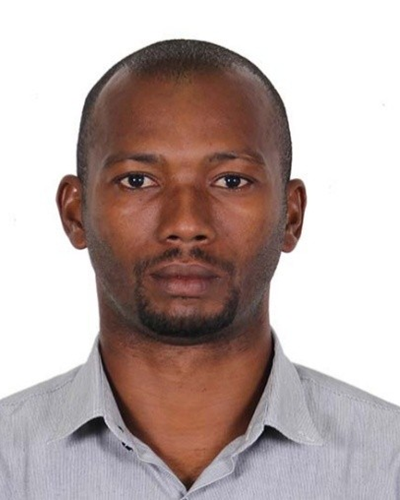Biography
Growing up in Grenada, Leon developed a deep and lasting connection to the environment and its wildlife. From an early age, he explored mangroves, rainforests, and other natural habitats with my father, experiences that laid the foundation for my lifelong passion for conservation. With his roots firmly planted in this field, he considers himself a dedicated conservationist committed to protecting the natural heritage of the Caribbean.
For more than 22 years, he has served as an educator, first in Grenada’s public schools, where he worked to give students a strong foundation in science. His teaching philosophy centers on fostering curiosity, critical thinking, and hands-on learning experiences, encouraging students to connect with science through real-world applications. In 2014, he transitioned into higher education as an instructor in the Department of Biology, Ecology and Conservation at St. George’s University. He holds a Bachelor of Science in Life Sciences from St. George’s University and a Master’s in Environmental Policy and Management from the University of Gloucestershire, UK.
As an undergraduate, he was a founding member of the St. George’s University Environmental Club (ECO), which has since grown into a leading conservation body on the island. ECO continues to partner with NGOs and play a pivotal role in wildlife and habitat preservation, particularly in coastal ecosystems.
His research focuses on sustainable agriculture, mangrove restoration, and community-driven conservation. Currently, he is in the third year of his PhD, examining the relationship between vegetation diversity and farm management practices on small islands—a project aimed at advancing sustainable approaches to land use and biodiversity conservation.
Beyond academia, he serves in leadership roles with several environmental organizations. He is the outgoing president of the Gaea Conservation Network and hold board positions with Ocean Spirits Turtle Conservation, the Grenada National Marine Protected Areas Advisory Body, the National Climate Change Committee, and the Technical Advisory Committee of the Grenada Sustainable Development Trust Fund (GSDTF).
In addition to teaching and research, he has spearheaded numerous regional projects, including mangrove habitat restoration in St. Vincent, watershed management consultancies, and Environmental and Social Impact Assessments in Grenada. Through these initiatives, he continues to work toward meaningful and lasting contributions to environmental conservation in the Caribbean.
Contact Information
Areas of Interest
- Impacts of agricultural practices on plant diversity on small islands
- Tropical forestry restoration
- Mangrove replanting techniques for yielding greater success
- Environmental education through community-based science projects
Affiliations
- PhD Candidate University of Gloucestershire, UK
- Research Student, Countryside and Community Research Institute, UK
Selected Publications
- Enoe, J., Radix, L., Nimrod, S., Adams, D., & Ramlal, B. (in press). Geospatial approach to coastal ecological assessment in Woburn Clarks Court Bay Marine Protected Area, Grenada. Journal of Caribbean Environmental Sciences and Renewable Energy (CESaRE).
Selected Projects
- May 9, 2025: Investigating Environmental Factors Affecting Bee Behavior & Hive Productivity Using Precision Beekeeping Tools in Grenada Student: Jadi Caton
- Project: Capstone 2, Department of Biology, Ecology and Conservation, SAS Supervisors: Mr. Leon Radix & Dr. Sharlene Beharry September 1, 2025: Comparative Growth and Survival of Nursery-Raised Seedlings versus Wild Propagules of Mangroves at Lagoon Road, St. George’s, Grenada Student: Kavita Douglas Project: Capstone 1, Department of Biology, Ecology and Conservation, SAS Supervisors: Mr. Leon Radix & Dr. Stephen Nimrod
SVM Research Faculty
View the SVM faculty involved in research and SVM Adjunct and Cooperating faculty who collaborate with SVM researchers. SVM faculty also collaborate with many other researchers at institutions in North and South America, Europe, Africa and Asia. These collaborations are reflected within the individual SVM faculty research profile.


